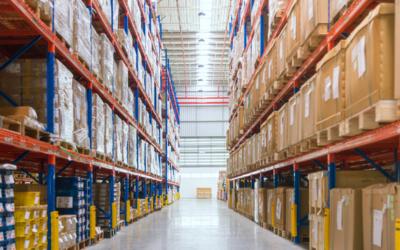In an era where sustainability and eco-consciousness are at the forefront of business practices, the food industry is no exception. Embracing renewable energy sources is not only a responsible choice but also a smart one, particularly when it comes to harnessing the power of the sun. That being said, how is this significant to the food industry, and how it’s changing the landscape for the better?
Sustainable Food Production
Sustainability has become a buzzword in the food industry, and for good reason. As consumers become increasingly concerned about the environmental impact of their choices, businesses are under pressure to adapt. Solar power is a powerful ally in this quest for sustainability.
Reduced Carbon Footprint:
Solar energy is a clean and renewable resource. By installing solar panels, food producers can significantly reduce their carbon footprint. The energy generated from the sun is not associated with greenhouse gas emissions, making it an environmentally friendly choice.
Lower Energy Costs:
The food industry relies heavily on energy for various processes, from refrigeration and cooking to packaging. Solar power can substantially reduce energy costs over time, allowing businesses to allocate resources more efficiently.
Energy Independence:
Solar power provides a degree of energy independence. By generating their electricity on-site, food producers can mitigate the risks associated with fluctuating energy prices and grid instability.
Solar Power in Food Production
Solar power is not limited to the reduction of energy costs and environmental impact. It plays a crucial role in various aspects of food production:
Sustainable Farming:
Solar energy can power irrigation systems, greenhouses, and other essential equipment on farms. This ensures the sustainability of crop production while minimizing the reliance on non-renewable energy sources.
Cold Storage:
The food industry relies heavily on refrigeration and cold storage. Solar-powered systems can maintain the required low temperatures while reducing operating costs and environmental impact.
Food Processing:
Solar power can be harnessed for food processing operations such as drying, dehydration, and pasteurization. This not only saves energy but also enhances the quality and shelf life of food products.
CJR Wholesale & DairyCentral’s Commitment to Sustainability
At CJR Wholesale & DairyCentral, we recognize the importance of sustainable practices in the food industry. We are committed to reducing our environmental footprint and supporting our partners in doing the same.
Solar-Powered Warehouses:
Our commitment to sustainability extends to our own operations. We have invested in solar-powered warehouses to reduce our energy consumption and reliance on non-renewable resources.
Eco-Friendly Product Lines:
We offer a range of eco-friendly and sustainable food products to cater to the evolving needs of our customers. Our selection includes organic, locally sourced, and ethically produced options.
Solar power is more than just a trend; it’s a fundamental shift towards a more sustainable and responsible food industry. By embracing solar energy, businesses can reduce their environmental impact, lower operational costs, and contribute to a greener future.
At CJR Wholesale & DairyCentral, we believe in the power of solar energy to transform the food industry positively. As you explore ways to make your food business more sustainable, consider the benefits of harnessing the sun’s energy. It’s a choice that not only benefits your bottom line but also the planet we all share.








